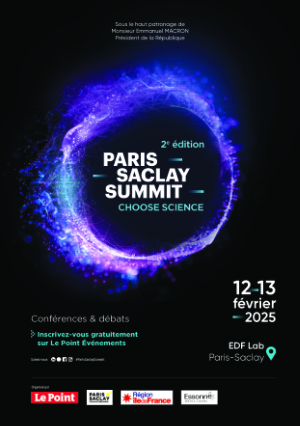Exploration de la dynamique de reconnaissance chirale
| ABG-127414 | Stage master 2 / Ingénieur | 4 mois | 660 euros |
| 05/12/2024 |
- Physique
- Chimie
Établissement recruteur
Site web :
CELIA est un laboratoire de recherche de l'Université de Bordeaux. Voir www.celia.u-bordeaux.fr.
Description
Un stage pour Master2 (ou équivalent) est disponible au laboratoire CELIA de l'Université de Bordeaux (www.celia.u-bordeaux.fr). Il concerne l'étude théorique de molécules chirales.
Résumé en anglais:
Chiral molecules are of paramount importance in biology because they are building blocks of organic matter, including human beings. Chiral molecules appear in pairs of left- and right-handed enantiomers, where their nuclear arrangements present non-superimposable mirror twins. The enantiomers of a chiral molecule interact differently with their environment as soon as this latter presents a chiral character, which is the case of most chemoreceptors of living organisms. Such enantio-sensitive interactions are commonly employed in pharmacology but the underlying mechanisms of chiral recognition are not well understood so far.
We will thus address this problem from a fundamental point of view. We will consider the dissociation of chiral dimers consisting of the aggregation of two enantiomers through hydrogen bonds (see the Figure). Dissociation is here interpreted as the inverse process of chiral recognition where enantiomers approach each other. As the distance between the two chiral components increases during the dissociation, we will characterize the chirality of the whole system in terms of the asymmetry of the photoelectron angular distribution resulting from the absorption of one ionizing photon [1,2]. Taking the response of single enantiomers as reference, this will enable us to define the critical distance where enantiomers start to recognize each other.
Les candidats peuvent soumettre leur candidature en ligne ou par mail à Bernard Pons.
Une thèse est prévue après le stage; elle impliquera une collaboration avec l'Université Autonome de Madrid.
Les financements pour le stage et la thèse sont déjà disponibles.
Références :
[1] S. Beaulieu et al., New. J. Phys. 18, 102002 (2016) ; V. Wanie et al., Nature 630, 109 (2024)
[2] A. Comby et al., J. Phys. Chem. Lett. 7, 4514 (2016) ; V. Blanchet et al., Phys. Chem. Chem. Phys. 23, 25612 (2021)
Profil
Etudiant Master 2 ou équivalent.
Prise de fonction
Vous avez déjà un compte ?
Nouvel utilisateur ?
Vous souhaitez recevoir nos infolettres ?
Découvrez nos adhérents
 ANRT
ANRT  CESI
CESI  Institut de Radioprotection et de Sureté Nucléaire - IRSN - Siège
Institut de Radioprotection et de Sureté Nucléaire - IRSN - Siège  ONERA - The French Aerospace Lab
ONERA - The French Aerospace Lab  CASDEN
CASDEN  TotalEnergies
TotalEnergies  Tecknowmetrix
Tecknowmetrix  Groupe AFNOR - Association française de normalisation
Groupe AFNOR - Association française de normalisation  Généthon
Généthon  Laboratoire National de Métrologie et d'Essais - LNE
Laboratoire National de Métrologie et d'Essais - LNE  Nokia Bell Labs France
Nokia Bell Labs France  SUEZ
SUEZ  PhDOOC
PhDOOC  MabDesign
MabDesign  Ifremer
Ifremer  Institut Sup'biotech de Paris
Institut Sup'biotech de Paris  MabDesign
MabDesign  Aérocentre, Pôle d'excellence régional
Aérocentre, Pôle d'excellence régional  ADEME
ADEME




